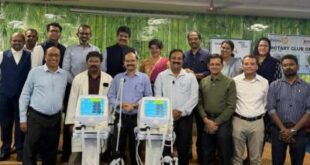Could something as routine as brushing your teeth properly, be a key to lowering your cancer risk? In small towns, oral hygiene often focuses on looks and freshness, but the connection between oral health and overall well-being in undeniable. Studies have often shown that poor oral health may play a role in the development of cancers, especially those of the head, neck and oral cavity. By recognising the connection early, caregivers and individuals can take practical steps to build stronger defences, not just for oral, but for life.
Why Oral Health Matters to Cancer Prevention
The human mouth is more than merely a portal for nourishment – it serves as the gatekeeper of our overall health. Poor oral health, marked by gum disease, infections, or missing teeth, creates an environment where harmful bacteria thrive, inflammation persists and cells are damaged. A recent study has found that an inadequate oral hygiene practices leads to higher incidence of oral cancers. It highlighted that people who had regular dental visits over ten years had lower cancer mortality, particularly for head and neck cancers.
The message is clear: good oral health is more than a dental concern – it’s an investment in lifelong health and wellbeing.
Key Risk Factors in the Indian Context
- Tobacco and smokeless forms:Use of smoking tobacco, betel quid, “gutka” and other smokeless tobacco products remains a major risk factor for cancers of the oral cavity and throat. Poor oral hygiene amplifies this risk.
- Chronic gum disease and missing teeth:Long-standing gum inflammation (periodontitis) and loss of teeth increase vulnerability, by allowing bacteria to penetrate, and by creating ongoing tissue repair demands.
- Delayed dental care:Many people in smaller cities wait until pain or visible damage appears. Failing to seek regular check-ups means minor damage may evolve unchecked into more serious conditions.
- Lifestyle and diet:A diet high in sugar, processed foods and frequent acidic or sticky snacks supports dental decay and contributes to an oral environment less protective of health. While diet alone is not the main cause, it is a modifiable contributor.
Everyday Habits That Make a Difference
Caregivers and individuals alike can adopt these straightforward habits to strengthen oral-health defences:
- Brush at least twice daily with a fluoride-based toothpaste, using soft bristles and gentle circular motions, to remove plaque and food debris.
- Floss daily or use interdental brushes to clean between teeth where toothbrushes cannot reach, untreated interdental area is a prime site for bacterial growth.
- Visit the dentist every 6–12 months (or more often if you smoke or consume tobacco, or have gum disease). Regular visits detect early lesions, ill-fitting dentures, or signs of chronic inflammation. The recent Indian study underscores that regular dental visits reduce cancer risk.
- Avoid tobacco (smoked or smokeless) and moderate alcohol, these remain the strongest known risk factors for oral and head-neck cancers. When combined with poor oral hygiene, the risk multiplies.
- Maintain a balanced diet rich in fresh vegetables, whole grains and moderate sugar, these support immune strength and reduce acid/bacterial burden in the mouth.
- Ensure good denture fit and address sharp teeth or chronic mouth trauma, these conditions create repetitive damage and raise risk of malignant changes.
Monitoring, Early Detection and When to Act
- Observe for persistent mouth ulcers that don’t heal in 2–3 weeks, unexplained bleeding, lumps in the mouth, loose teeth without obvious cause, or changes in voice, swallowing or tongue function.
- If you have a high-risk habit (tobacco use, excessive alcohol consumption (previous oral lesions), consult your dentist for periodic screening of potentially pre-cancerous changes.
- Consider integrating oral-health checks into broader preventive health routines—especially for individuals with diabetes, chronic lung or heart conditions, where inflammation may already be elevated.
- Encourage family members, especially elders or those with risk factors, to prioritise dental visits and daily hygiene routines. Caregiver support makes a real difference in sustaining these habits.
A Healthy Mouth, A Stronger Shield Against Cancer
Oral hygiene is more than a cosmetic routine, it’s a frontline defence for your overall health. In India, where tobacco use and delayed dental care remain common, something as simple as brushing, flossing, and scheduling regular dental check-ups can become powerful tools in cancer prevention.
By keeping the mouth free of chronic inflammation and infection, you lower the risks that silently accumulate over time. Every small step count: a cleaner mouth means a healthier body, stronger immunity, and fewer pathways for disease to take hold.
For caregivers and families, encouraging loved ones to maintain these habits is an act of protection. Because safeguarding oral health isn’t just about preserving a smile, it’s about preserving life itself.
Dr Taher Manaquibwala (Consultant- Radiation Oncologist), HCG Cancer Center Indore.
 Newspatrolling.com News cum Content Syndication Portal Online
Newspatrolling.com News cum Content Syndication Portal Online






